Andrew Gillen is a Research Fellow at the Cato Institute.
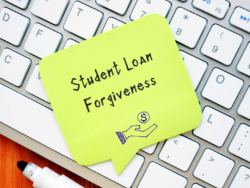
Editor’s Note: This article was originally published by Cato Institute on June 3, 2024 and is crossposted here with permission. Note, this post updates last month’s post. The biggest changes from last month include: Updated total loan forgiveness figures ($167 billion for 4.75 million borrowers) to account for the latest developments. Update on the Mackinac and Cato lawsuit, and the […]
Read More
Editor’s Note: This series is adapted from the new paper, Higher Education Subsidization: Why and How Should We Subsidize Higher Education? Part 1 explored the justifications and rationales that have been used to subsidize higher education. This part explores subsidy design considerations. There have been seven main justifications for subsidizing higher education: Promoting favored religions, […]
Read More
Editor’s Note: This series is adapted from the new paper Higher Education Subsidization: Why and How Should We Subsidize Higher Education? Part 1 explores the justifications and rationales that have been used to subsidize higher education. Higher education has long been subsidized by the government in America, but the reasons used to justify subsidization have […]
Read More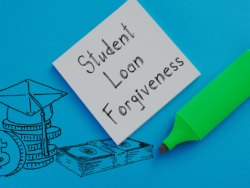
Editor’s Note: This article was originally published by Cato Institute on May 1, 2024 and is crossposted here with permission. Note: This post updates last month’s post. The biggest changes from last month include: The newest plan relying on regulatory changes under the Higher Education Act has been released and is summarized. A new court case against the SAVE plan […]
Read More
Editor’s Note: This article was originally published by Cato Institute on April 24, 2024 and is crossposted here with permission. Immediately after the Supreme Court overturned his last big student loan forgiveness plan, President Biden announced a new effort that would rely on a different law, an effort that is now nearing completion. The administration has released the draft regulations that would […]
Read More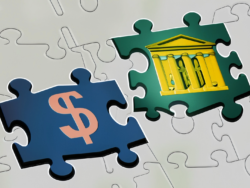
Public institutions typically charge out-of-state students much higher tuition than in-state students. Bryan Caplan and Alex Tabarrok, two leading libertarian economists, have been discussing the puzzle of why that is the case. They correctly rule out the monopoly or cartel explanation. If public colleges were a monopoly or cartel, they could charge higher prices to […]
Read More
We’ve been exploring the pros and cons of the College Cost Reduction Act, a bill introduced by House Republicans. Here we continue that effort, asking which types of colleges would gain or lose under the bill. Two new features the bill introduces are bonus payments and risk sharing penalties that colleges would receive to pay […]
Read More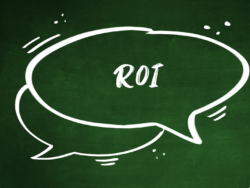
The financial return to education is fiendishly hard to quantify for a host of legitimate reasons, including limited data availability and the need to account for unobservable counterfactuals. But it is also difficult because of cloudy thinking such as misinterpretations, survivorship bias, and faulty assumptions. The best example of misinterpretation concerns the decades-long run of […]
Read More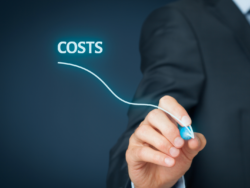
The recently released College Cost Reduction Act (CCRA) improves the financial aid system. The determination of a student’s financial aid eligibility involves two key components: the Student Aid Index (SAI) and the Cost of Attendance (CoA). The SAI represents the government’s estimate of what a student—and their parents if the student is dependent—can afford to contribute […]
Read More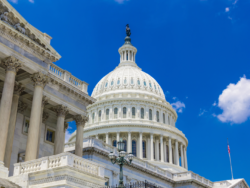
Republicans on the House Committee on Education and the Workforce released the College Cost Reduction Act, which proposes a wide range of changes to higher education. Much is in the bill, but the most important changes revolve around transparency, financial aid reforms, deregulation, and accountability. Transparency The bill would make several changes to improve […]
Read More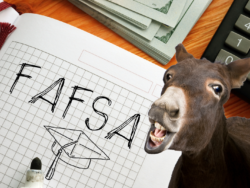
Millions of potential and current college students fill out the Free Application for Federal Student Aid (FAFSA) every year. In 2020, Congress passed a law updating the FAFSA and the aid formulas for 2024, but the Department of Education’s (ED) release of the new FAFSA has been a fiasco. Despite having three years to prepare, […]
Read More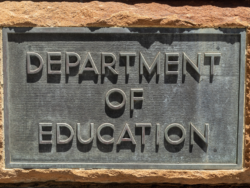
One critique of those on the left is that they’ve weaponized the legal and administrative systems against their political opponents. This isn’t necessarily new, or even unique to the left. Republican President Richard Nixon tried to weaponize the IRS to threaten and punish opponents. Decades later, Democrat President Barack Obama did the same. Under Obama’s […]
Read More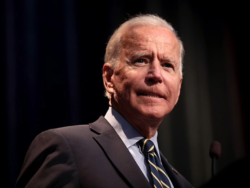
It is no secret that the Biden administration wants to forgive student loans. One—of at least eight—of its forgiveness proposals has been definitively buried, which would have forgiven up to $20,000 per borrower, or $10,000 if not a Pell Grant recipient. There were many reasons why this plan was terribly designed, and it was ultimately […]
Read More
Hamas’s rampage through Israel earlier this month was a shock to the world. The terrorists deliberately targeted civilians, including children, women, and the elderly. Babies had their heads cut off. Women were raped and then murdered. In all, 1,400 Israelis were killed, the worst massacre of Jews since the Holocaust. The sadistic methods are tough […]
Read More
The student loan payment pause is officially over, with payments resuming this month. What was the student loan payment pause? One of the policies enacted when the COVID-19 pandemic hit in March 2020 was a student loan repayment pause. During the pause, loan payments were not required, interest did not accrue, and involuntary collections […]
Read More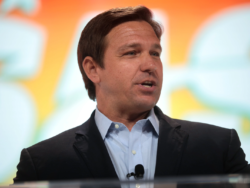
The once-sleepy topic of accreditation continues to take shape as perhaps the most important frontline topic in the battle for higher education reform. For those who aren’t familiar with accreditation, a previous piece provided a short summary: On paper, accreditors are private entities that review the quality of colleges. They serve as one of the […]
Read More
One of the key stories in higher education finance is so-called “state disinvestment,” which alleges that states have made relentless cuts to college and university funding. But state disinvestment is a myth—states have not, in fact, disinvested in higher education. In this debate, a picture is worth a thousand words, so here is a figure […]
Read More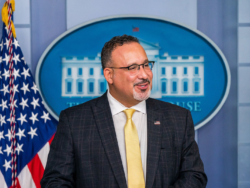
Student loan forgiveness is a topic that isn’t going away. Progressives want all student loan debt forgiven, and the Biden administration has been trying to deliver. In fact, the Biden team has been the most aggressive administration on student loan forgiveness in history. But it’s not clear to me whether the administration is winning or […]
Read More
Republicans in both the House and the Senate have recently released a slew of new legislation focused on reforming higher education. In the Senate, Republicans announced the Lowering Education Costs and Debt Act, which itself comprises a bundle of five bills. The College Transparency Act (CTA) is a bipartisan bill that aims to remove the […]
Read More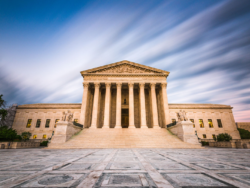
The U.S. Supreme Court struck down the Biden administration’s student loan forgiveness plan on Friday. The administration was attempting to forgive $10,000 of student loans for borrowers making less than $125,000 per year, and $20,000 for those who had received a Pell grant. The alleged authority for this action was a 20-year-old law that allows […]
Read More
The Biden administration plans to release new gainful employment regulations. The regulations would terminate federal financial aid for some programs where graduates do not earn more than high school graduates or where the students take on excessive debt, as determined by two debt-to-income tests. My previous list of pros and cons still holds, but having […]
Read More
Choosing whether and where to attend college is the most important financial decision of a young person’s life. Yet, in general, we withhold the information that would allow students to make informed decisions. The most blatant example is hiding the cost of college. In 2018, Stephen Burd, Rachel Fishman, Laura Keane, Julie Habbert, Ben Barrett, […]
Read More
Vocational programs have long been required to help their students secure gainful employment, but until the early 2010s, gainful employment had never been defined. The Biden administration has just released a draft of the latest Gainful Employment regulations, and, like the previous iterations, it would terminate financial aid eligibility (Pell grants, students loans, etc.) for […]
Read More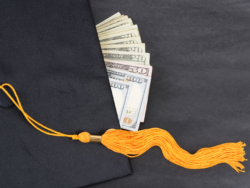
Student loans operate very strangely in this country. A student borrows money from the federal government to pay for higher education expenses—thus, there are three parties involved (the student, the government, and the college or university). But only two of them face any risk from the loan. The student faces severe financial consequences if he […]
Read More
While student loans are a widely acknowledged problem, one program sticks out as particularly troublesome: the Grad PLUS program. After graduate students max out their traditional student loans, which include an annual and an aggregate borrowing limit, there is no limit to how much they can borrow through the Grad PLUS program. Unsurprisingly, this has […]
Read More
Over at the Chronicle of Higher Education, Jarrod Kelly chides the Right for pushing back on accreditation. While the headline is a bit aggressive (“The Right-Wing War on Accreditation”), authors generally don’t get to choose their headlines, and the piece itself is quite measured. While the ostensible focus of our disagreement is accreditation, I think […]
Read More
The higher education accountability movement has seen very little progress over the years. The main success was the establishment of Cohort Default Rates, which revoked financial aid eligibility for colleges where too many students defaulted on their student loans. But this was both obscenely forgiving (a college could only lose eligibility if 30% or more […]
Read More
Accountability is getting more and more attention in higher education. Democrats will soon release new gainful employment regulations, while Republicans are considering a range of accountability approaches, including risk-sharing that would put colleges on the hook when students can’t repay their student loans. With so many new ideas for accountability systems in the air, it […]
Read More
Historically, I’ve been a late adopter of technology. I was one of the last people I know to get a cell phone. And I continued to pay for gas inside the gas station for years after everyone else started paying at the pump with a credit card. But recognizing my own Luddite tendencies, I try […]
Read More
The Biden administration has released its plans to introduce a new income-driven repayment program for student loans. The proposed regulations are as bad as the early indications hinted they would be. For those just getting up to speed, a standard loan uses a fixed monthly payment and a predetermined number of payments (e.g., a car […]
Read More